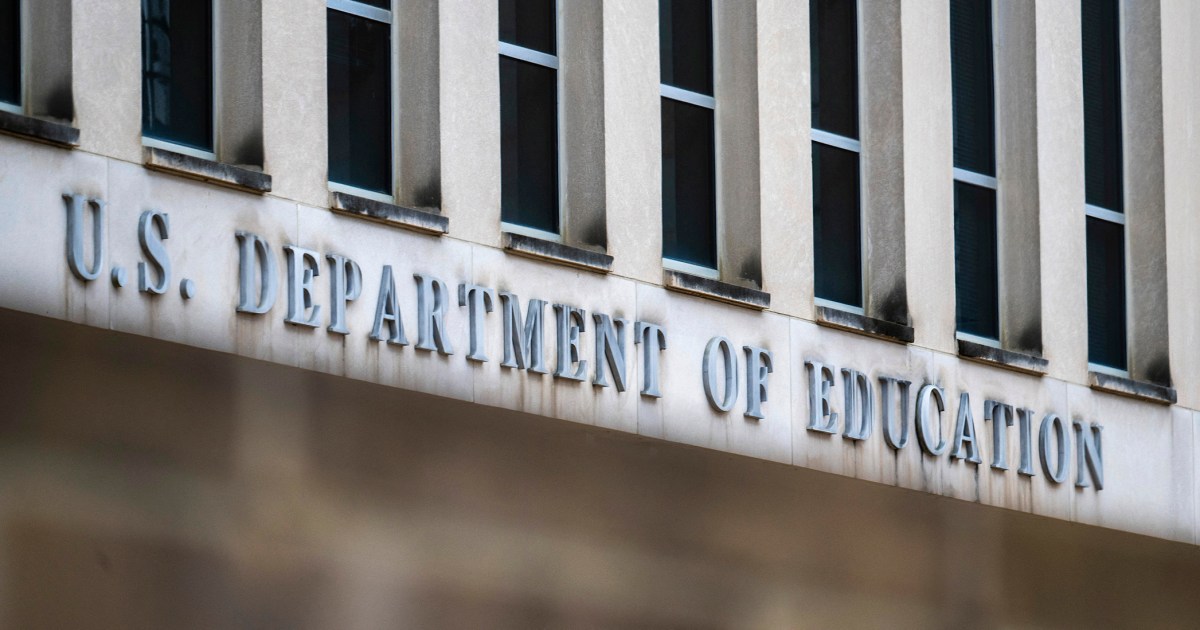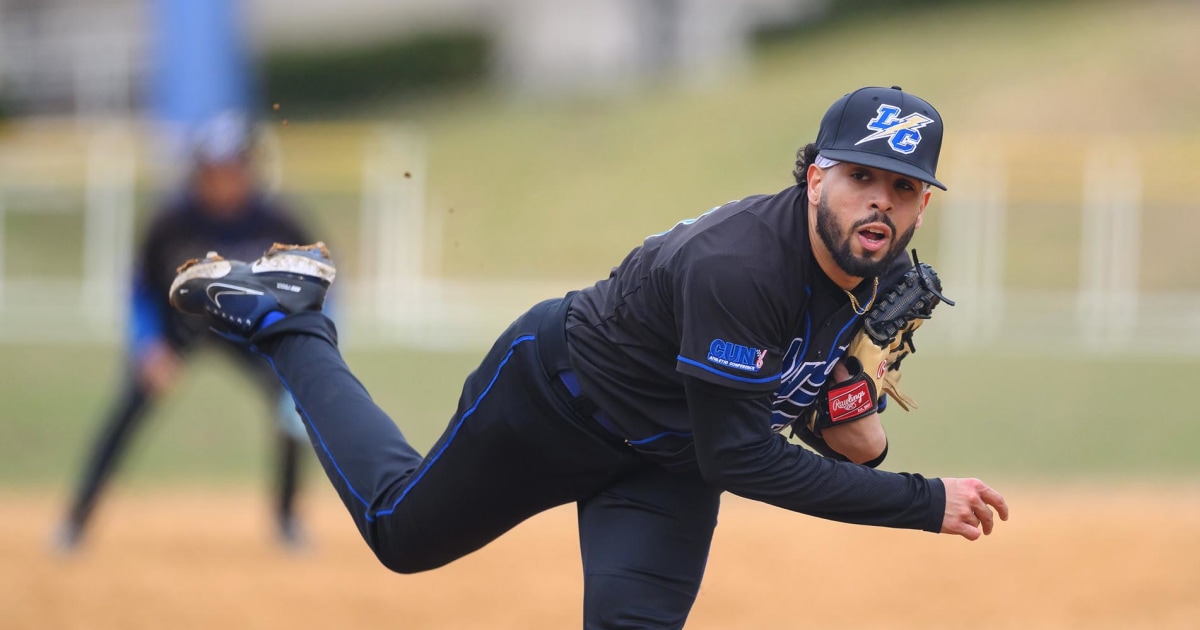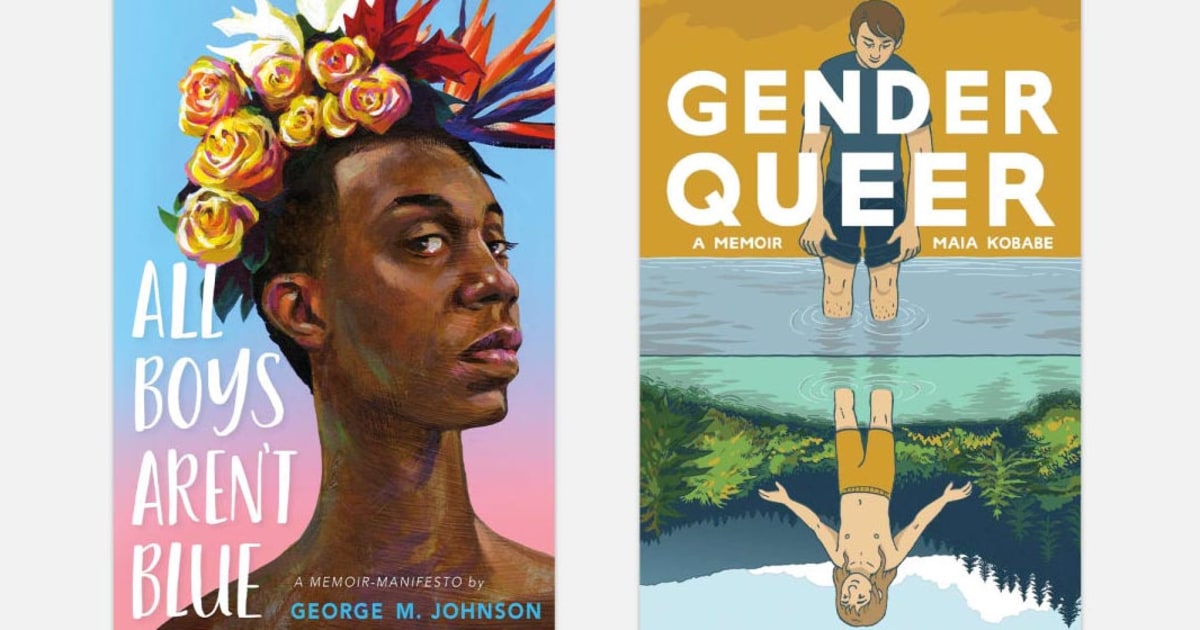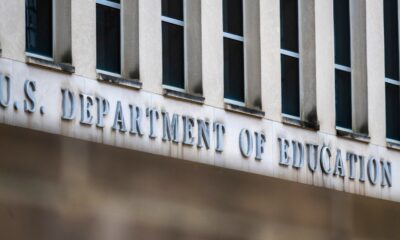Education
More than 50 universities face federal investigations amid Trump’s anti-DEI campaign

WASHINGTON — More than 50 universities are being investigated for alleged racial discrimination as part of President Donald Trump’s campaign to end diversity, equity and inclusion programs that his officials say exclude white and Asian American students.
The Education Department announced the new investigations Friday, one month after issuing a memo warning America’s schools and colleges that they could lose federal money over “race-based preferences” in admissions, scholarships or any aspect of student life.
“Students must be assessed according to merit and accomplishment, not prejudged by the color of their skin,” Education Secretary Linda McMahon said in a statement. “We will not yield on this commitment.”
Most of the new inquiries are focused on colleges’ partnerships with the PhD Project, a nonprofit that helps students from underrepresented groups get degrees in business with the goal of diversifying the business world.
Department officials said that the group limits eligibility based on race and that colleges that partner with it are “engaging in race-exclusionary practices in their graduate programs.”
The group of 45 colleges facing scrutiny over ties to the PhD Project include major public universities such as Arizona State, Ohio State and Rutgers, along with prestigious private schools like Yale, Cornell, Duke and the Massachusetts Institute of Technology.
A statement from Ohio State said the university “does not discriminate on the basis of race, ethnicity or any other protected class, and our PhD programs are open to all qualified applicants.”
A message sent to the PhD Project was not immediately returned.
Six other colleges are being investigated for awarding “impermissible race-based scholarships,” the department said, and another is accused of running a program that segregates students on the basis of race.
The Education Department said those schools are: Grand Valley State University, Ithaca College, the New England College of Optometry, the University of Alabama, the University of Minnesota, the University of South Florida and the University of Oklahoma at Tulsa.
An initial press release from the Education Department erroneously identified the University of Tulsa as one of the schools under investigation.
The Feb. 14 memo from Trump’s Republican administration was a sweeping expansion of a 2023 Supreme Court decision that barred colleges from using race as a factor in admissions.
That decision focused on admissions policies at Harvard and the University of North Carolina, but the Education Department said it will interpret the decision to forbid race-based policies in any aspect of education, both in K-12 schools and higher education.
In the memo, Craig Trainor, acting assistant secretary for civil rights, had said schools’ and colleges’ diversity, equity and inclusion efforts have been “smuggling racial stereotypes and explicit race-consciousness into everyday training, programming and discipline.”
The memo is being challenged in federal lawsuits from the nation’s two largest teachers’ unions. The suits say the memo is too vague and violates the free speech rights of educators.
Education
Democratic-led cities and states push back on threats to cut US school funding over DEI

Some Democratic-led states and cities are pushing back on a Trump administration threat to cut education funding over diversity, equity and inclusion programs, creating a standoff that could test how far the White House is willing to go to press its demands on the nation’s schools.
State leaders in Minnesota and New York said they will not comply with an Education Department order to gather signatures from local school systems certifying compliance with civil rights laws, including the rejection of what the federal government calls “illegal DEI practices.” Chicago’s mayor promised to sue over any cuts. California and Vermont told schools they don’t need to respond.
It amounts to some of the most forceful opposition the Education Department has faced as it uses federal funding as leverage to enact President Donald Trump’s agenda on issues from DEI to campus antisemitism and transgender athletes. The White House has targeted colleges and K-12 schools alike, but unlike universities that rely greatly on federal grants and contracts, school systems get the vast majority of their money from state and local sources.
In a letter Monday to the Education Department, Minnesota’s education chief said the Trump administration overstepped its authority with its latest demand, adding that there’s nothing illegal about DEI.
“Threats to this funding without backing in law or established requirements put key programs at risk that students and schools depend on every day,” said Willie Jett, Minnesota’s education commissioner. The federal department “does not have the authority to unilaterally overrule the will of Congress.”
Jett said his letter would “serve as our response” to the Trump administration’s demand.
It follows a Friday letter from New York’s education office challenging the federal government’s latest demand. It said New York already has provided assurances that it follows federal law and “no further certification will be forthcoming.”
The U.S. Education Department told state agencies in a letter Thursday they must sign a document saying they follow federal antidiscrimination laws and get the same assurance from schools. The document threatens to cut federal money for any civil rights violation, including using DEI practices “to advantage one’s race over another.”
On Tuesday, Education Secretary Linda McMahon commended Puerto Rico for being the first to submit its certification. “Every state that wants to continue receiving federal funds should follow suit,” McMahon posted on X.
The letter does not carry the force of law but threatens to use civil rights enforcement to rid schools of DEI practices. Schools that continue such practices “in violation of federal law” can face Justice Department litigation and a termination of federal grants and contracts, it said.
The letter initially gave states 10 days to submit the certification. On Monday, the Education Department extended the deadline to April 24.
A department spokesperson said the agency is “simply asking school districts to certify they are following the law and not using race preferences or pernicious race stereotypes in schools.”
Even some Republican-led states believe they don’t need to get the document signed by each school. Missouri’s education office said schools previously provided assurances that should cover the department’s demand and it will reach out to districts “if additional information is necessary.”
Others are moving to follow the order, including Virginia and Arizona, where state education chief Tom Horne said the order “aligns completely with my philosophy.”
Vermont’s education chief assured schools the state supports DEI practices and said superintendents won’t need to sign the certification. Instead, the state will assure federal officials it’s already following federal law, Zoie Saunders, the state’s education secretary, said in a Monday letter to school districts.
The Illinois board of education rebuked the federal agency, saying it’s “attempting to exert power over every district in the country — even as it claims it’s returning education to the states.” Chicago Mayor Brandon Johnson, a Democrat, said his city is willing to go to court over the order, which he called federal overreach.
The New York and Minnesota letters both cite past comments from Betsy DeVos, Trump’s education secretary during his first term, extolling the virtues of diversity and inclusion. In a 2020 memo to agency staff, DeVos wrote that “embracing diversity and inclusion are key elements for success.” The states argue the Education Department is shifting its position without explanation.
The states also accuse the Education Department of making broad declarations about the illegality of DEI without citing policies that violate federal law. Minnesota’s letter said if the federal agency has identified DEI practices that violate civil rights law, “we request advisement of them.”
Many states said they’re still reviewing the letter.
Education
These college baseball teams have lost a combined 141 straight games. That changes today.

Years of baseball hardship will end Tuesday afternoon for either the Yeshiva University Maccabees or the Lehman College Lightning.
Yeshiva, a Modern Orthodox Jewish school, has dropped 99 consecutive contests, while its New York City neighbor carries a 42-game losing skid into Tuesday’s nonconference doubleheader in Teaneck, New Jersey.
The Maccabees, 0-18 this season, last won a game on Feb. 27, 2022, in a doubleheader sweep of the John Jay Bloodhounds. The 0-13 Lightning last checked in to the win column on May 9, 2023, with a 7-4 victory over the Baruch College Bearcats.
Yeshiva alumnus and comic Eitan Levine called the matchup “statistically, the worst baseball game of all time.”
Yeshiva, however, still has years to go before it comes close to the 228 consecutive games the Caltech Beavers lost from 2003 to 2013.
The NCAA does not have any record of most combined losses by two teams meeting in any one contest. An NCAA spokesperson, told of the upcoming Yeshiva-Lehman contest, said Monday, “Wow, those are big numbers.”
Yeshiva coach Jeremy Renna, athletic director Greg Fox and all the players refused comment on the losing streak, according to a university spokesperson. No Yeshiva representative is expected to be made available for comment after Tuesday’s game, which will be played at Fairleigh Dickinson University.
“The university has made the call from above myself, and above the AD, that we’re not going to comment on” the streak, athletic department spokesperson Zeke Warren-Weigmann told NBC News on Monday.
Lehman athletic director Ryan McCarthy said he’s still confident in Lightning coach Chris Delgado, even as the losses pile up.
“We are certain he can turn our program around,” McCarthy said in a statement. “He has been hard at work in identifying and obtaining commitments from prospective student-athletes, laying the groundwork for future success while setting a culture on our current roster.”
Delgado, 26, acknowledged all of the losing has been tough to endure but insists the team is making progress.
“Being on a losing streak is tough, especially a lengthy one, as many people will measure success by the number of tallies in the win column,” said Delgado, a pitcher on the last Lehman team to win a ballgame in 2023. “However, results don’t determine the type of program that we have. With the new coaching turnover, we’re rebuilding [a] program that’s establishing a strong foundation of excellence and integrity.”
The Naimoli Family Baseball Complex, Tuesday’s venue, is among several facilities that Yeshiva regularly rents as its home diamond. It has no lights. So in theory, a monster extra-inning affair in Game 1 could end in a tie.
First pitch is scheduled for 2 p.m. ET, with sunset at 7:28 p.m.
The Division III schools last met on the baseball diamond on May 13, 2022, when Lehman won 12-11.
Education
‘All Boys Aren’t Blue’ and ‘Gender Queer’ top 2024 list of most ‘challenged’ library books

Removing books from library shelves is no longer just a story of objections from a local community or an individual parent, the American Library Association says.
In its new State of American Libraries Report released Monday, the ALA found more than 70% of attempted bans of a given title or titles come from organized groups and elected officials, and just 16% originated with a parent.
The most commonly criticized books, including Maia Kobabe’s “Gender Queer” and the late Toni Morrison’s “The Bluest Eye,” can be found on such websites as www.ratedbooks.org and through lists compiled by Moms for Liberty and other conservative activists.
“We can trace many of the challenges to lists of books that have been distributed by Moms for Liberty and other groups,” said Deborah Caldwell-Stone, who directs the association’s Office for Intellectual Freedom.
As part of its annual report, the ALA unveiled its list of the 10 most “challenged books” of 2024, starting with George M. Johnson’s “All Boys Aren’t Blue,” and also featuring “Gender Queer,” “The Bluest Eye,” Stephen Chbosky’s “The Perks of Being a Wallflower” and John Green’s “Looking for Alaska.”
Most of the books listed have LGBTQ themes, continuing a yearslong trend. Other objections include references to drug addiction, such as in Ellen Hopkins’ “Crank,” and to slavery and sexual abuse, including those in Patricia McCormick’s “Sold.”
The ALA defines a challenge as a “formal, written complaint filed with a library or school requesting that materials be removed because of content or appropriateness.” The association, which compiles censorship data through media accounts and reports from librarians, has long believed the actual number of challenges is far higher than the numbers cited in its annual studies.
The report comes at an especially perilous time for libraries. The Trump administration is implementing drastic cuts at the Institute of Museum and Library Services, which already is canceling grants to state libraries.
Bans have surged in recent years and several states, from Texas and Florida to Iowa and Utah, have passed laws restricting what school libraries can acquire. While the ALA is reporting a sharp drop in challenges in 2024, down to 821 attempts compared to 1,247 the year before, the number remains far higher than before 2021.
And Caldwell-Stone doesn’t believe censorship is declining. Libraries are now more likely to avoid stocking books that are controversial, or may be prohibited by law, she says.
“I spoke to a librarian from Texas who told me she was looking over a political book and wasn’t sure if she could add it to the collection,” Caldwell-Stone said. “Librarians don’t want to get prosecuted or otherwise face legal trouble. A lot of librarians are operating under these kinds of threats.”
The 10 Most Challenged Books of 2024
1. “All Boys Aren’t Blue,” by George M. Johnson
2. “Gender Queer,” by Maia Kobabe
3. (Tie) “The Bluest Eye,” by Toni Morrison
3. (Tie) “The Perks of Being a Wallflower,” by Stephen Chbosky
5. “Tricks,” by Ellen Hopkins
6. (Tie) “Looking for Alaska,” by John Green
6. (Tie) “Me and Earl and the Dying Girl,” by Jesse Andrews
8. (Tie) “Crank,” by Ellen Hopkins
8. (Tie) “Sold,” by Patricia McCormick
10. “Flamer,” by Mike Curato
-

 Education2 days ago
Education2 days agoDemocratic-led cities and states push back on threats to cut US school funding over DEI
-

 Sports1 day ago
Sports1 day agoJason Day will opt for ‘toned down’ Masters outfit as organizers check what he plans to wear at the tournament
-

 Lifestyle1 day ago
Lifestyle1 day agoWater bottles have an array of new designs and functions
-

 Middle East23 hours ago
Middle East23 hours agoAt least 35 killed in Israeli attack on Gaza residential block | Israel-Palestine conflict News
-

 Sports24 hours ago
Sports24 hours agoAurélio Pereira: Cristiano Ronaldo pays tribute as legendary Portuguese coach who scouted him dies aged 77
-

 Middle East1 day ago
Middle East1 day agoEight charts that reveal the economic impact of Trump’s tariffs | Donald Trump News
-

 Europe1 day ago
Europe1 day agoTrump’s top trade official says president’s tariffs are necessary to fix trade deficit ‘emergency’
-

 Conflict Zones1 day ago
Conflict Zones1 day agoChinese soldiers in Ukraine: Is Beijing sending troops to back Russia? | Russia-Ukraine war News



